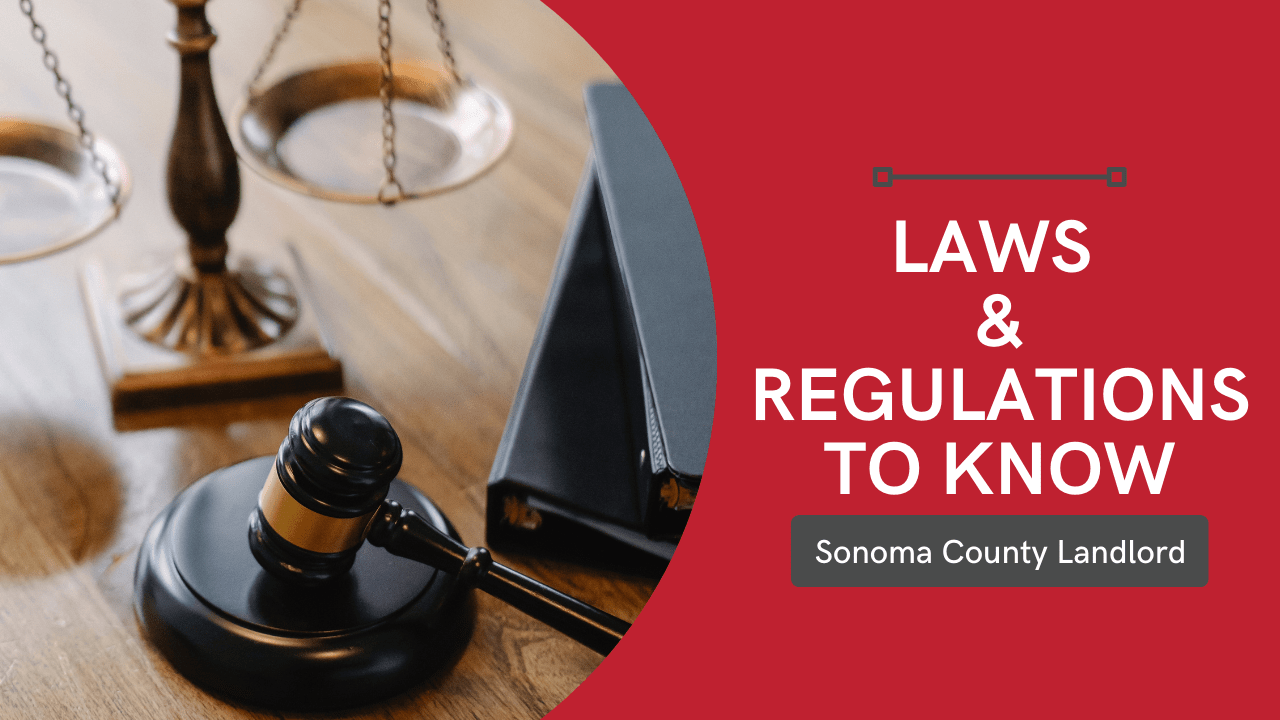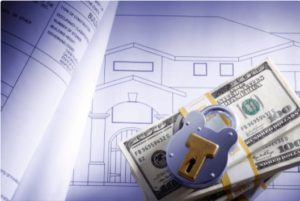
As a landlord, you have a lot of responsibilities to your tenants and to your rental property. Most property owners understand the legal requirement that they keep their homes safe and habitable. Beyond that, it can be difficult to understand the myriad of state, local, and federal laws affecting rental properties, tenants, and owners.
We want to highlight a few of the most important laws and regulations that you need to know. Staying up to date on the ever-changing laws in California can be a full-time job. If you’re struggling to understand how they pertain to you and your investment property, always reach out to a Sonoma County property management company. We can help prevent expensive mistakes.
Eviction Moratoriums in Sonoma County
It’s impossible to talk about California rental law right now without discussing the Tenant Relief Act, which is a response to renters who are struggling financially due to the COVID-19 pandemic. In 2020, California passed AB 3088, which imposed an eviction moratorium for nonpayment of rent. If your tenant declared that they could not pay rent due to the pandemic, you were not permitted to evict them.
That law is still in force now, and it’s been strengthened by SB 91. This new law extends the moratorium against eviction for tenants who have been financially impacted by the pandemic to June 30, 2021. This doesn’t mean the tenants don’t have to pay; the amount due to you is not forgiven. It simply means that those months of unpaid rent cannot be used as a reason to evict.
There’s a State Rental Assistance Program in place that can help ease the burden that many landlords and tenants are feeling. Applications are available and it’s worth finding out if you or your tenants qualify. You’ll be required to forgive 20 percent of the rent that’s overdue, but you’ll also receive up to 80 percent of what’s due from the state.
Rent Control and Just Cause Eviction
Even before the pandemic arrived, California had passed some of the most comprehensive tenant-friendly bills in the country. The Tenant Protection Act of 2019 did two important things:
- Established statewide rent control
- Required all evictions to be for just cause, otherwise financial penalties may apply.
There were other, subtle changes as well. For example, source of income now must include Section 8 and other housing vouchers when you’re screening tenants. You cannot declare your property unwelcoming to Section 8 renters. If they meet all of your other qualifications, they can use their Section 8 voucher as income and you must consider it while screening.
The interpretation of this bill is still ongoing. Many properties in Sonoma County may be exempt from rent control, and your lease will need to reflect whether you do or do not fall under the requirements of that law.
Sonoma County Security Deposit Law
 There are limits to what you can collect as a security deposit for your Sonoma County rental property. Assuming your home is unfurnished, the maximum amount is twice the monthly rent. If your home is furnished, you can collect three times the monthly rent.
There are limits to what you can collect as a security deposit for your Sonoma County rental property. Assuming your home is unfurnished, the maximum amount is twice the monthly rent. If your home is furnished, you can collect three times the monthly rent.
After your tenant leaves, you’ll conduct a thorough inspection to determine whether any damage needs to be deducted from the security deposit. California law requires you to return the security deposit to the tenants within 21 days of the tenant moving out. If the tenant isn’t receiving a full deposit refund, you must send the amount that they are getting back with an itemized list of what you’ve deducted and why.
Sometimes, a tenant may argue about what’s been withheld. Try to resolve this issue before it gets to court. If you’re found to have improperly withheld a security deposit or you didn’t return it within the 21 days, you could face penalties of three times the amount of the original security deposit.
There are just a few of the most important laws you need to know when you’re renting out a Sonoma County property. We’d love to tell you more. Please contact us at Redwood Residential Property Management.




 Graduate of Empire Business School, Santa Rosa in 1998 with an AA degree in Office Administration. Lorena has over 30 years of experience in office administration. From the California State Legislature to North Bay Realtors Association and most recently with Sue Carrell & Associates.
Graduate of Empire Business School, Santa Rosa in 1998 with an AA degree in Office Administration. Lorena has over 30 years of experience in office administration. From the California State Legislature to North Bay Realtors Association and most recently with Sue Carrell & Associates.